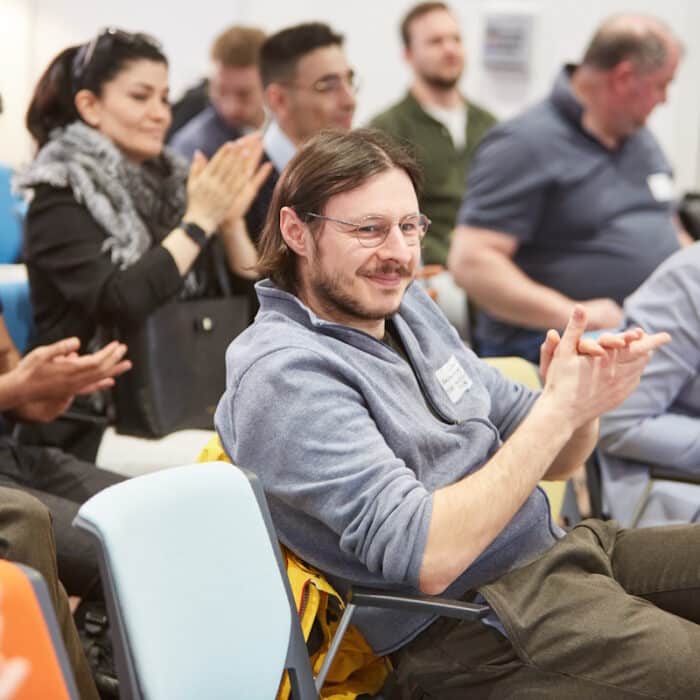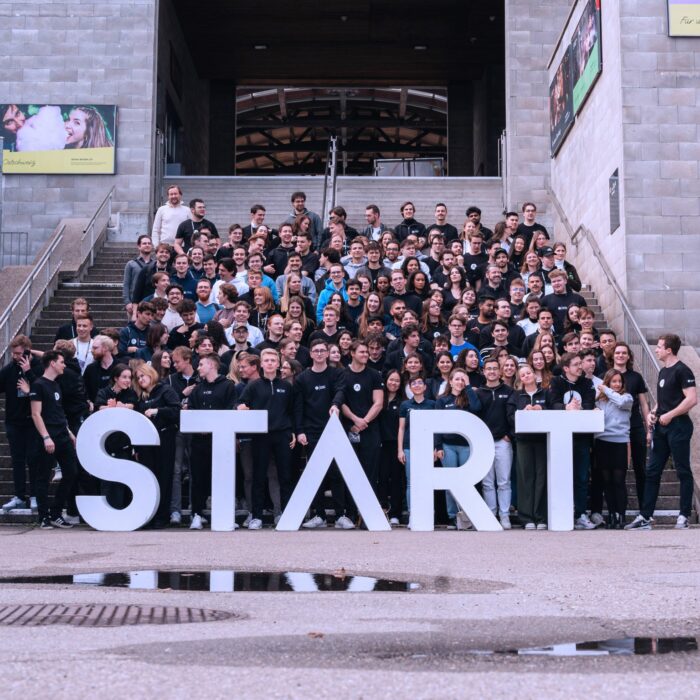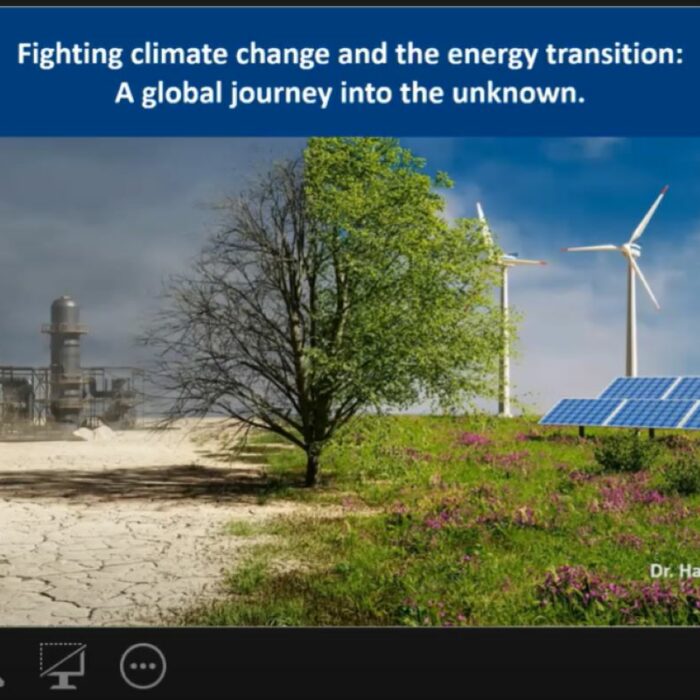Foundation of the month: Bytefabrik.AI
06.04.2022
Sandra Schöttelndreier
Founder of the month
Our startup of the month is Bytefabrik. Bytefabrik.AI develops intelligent software solutions to continuously analyze high-frequency industrial data streams.
We talk to Dominik and Philipp from the founding team.
What does your company stand for?
Dominik: We make analyzing live data from machines and plants easy! Our solution helps manufacturing companies to make data-driven decisions. Many machines already collect a lot of process data in running production processes via built-in sensors, e.g. pressure, temperature or results from test processes. However, this data is still used far too rarely away from the control system.
Philipp: On the one hand, this is due to a lack of time, since there is actually almost always a fire somewhere in production and therefore little time remains to use the data for optimization potential for better product or process quality. On the other hand, small and medium-sized companies in particular often have little or no data science know-how or IoT and therefore find it difficult to get started.
Dominik: And that’s exactly what we want to change with our no-code solution. Our software generates insights with just a few clicks, helps companies to gain transparency about running processes and, in a next step, also to generate predictions, e.g. regarding declining quality or maintenance cycles. And all this without much technical effort.
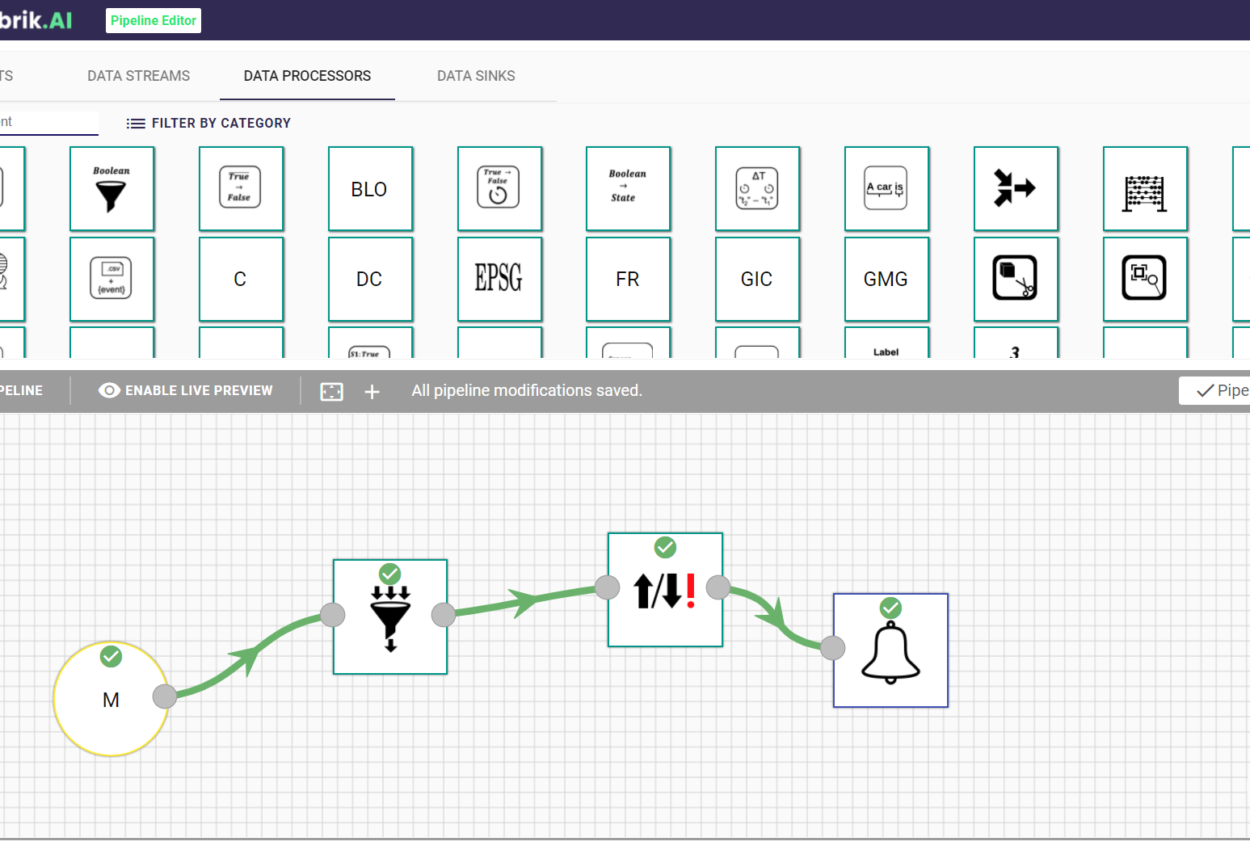
Where and how did you come up with the bright idea to found the company?
Dominik: We have been working at the FZI Research Center for Information Technology for the last few years. The FZI sees itself as a technology transfer center, is an innovation partner at KIT, and helps small and medium-sized enterprises in particular to translate new research findings into value-added applications. With our background regarding “stream processing” and machine learning, we have often had to deal with data from the production environment here. We often combined similar things over and over again. So we came up with the idea of creating a solution that would enable the reuse of algorithms to help users without programming skills to develop complex analytics applications.
Philipp: We then developed a prototype of the solution and made it available as open source. At that time, open source was already working very successfully in many areas, but in mechanical engineering we were entering rather uncharted territory. When we saw that there was more and more interest in our solution, we decided at the end of 2019 to place our software under the umbrella of a large foundation – the Apache Software Foundation. There, we now continue to develop the software in a lead role with other developers from around the world.
Dominik: And at some point it became clear that for a solution to work well and be used by companies, there also had to be commercial offerings. This applies not only to maintenance and support, but also to customer-specific modules. So we came up with the idea of adding modules for training AI models on top of the open source solution, which also work completely without programming effort through communication with the user. This is what we call “interactive AI”.
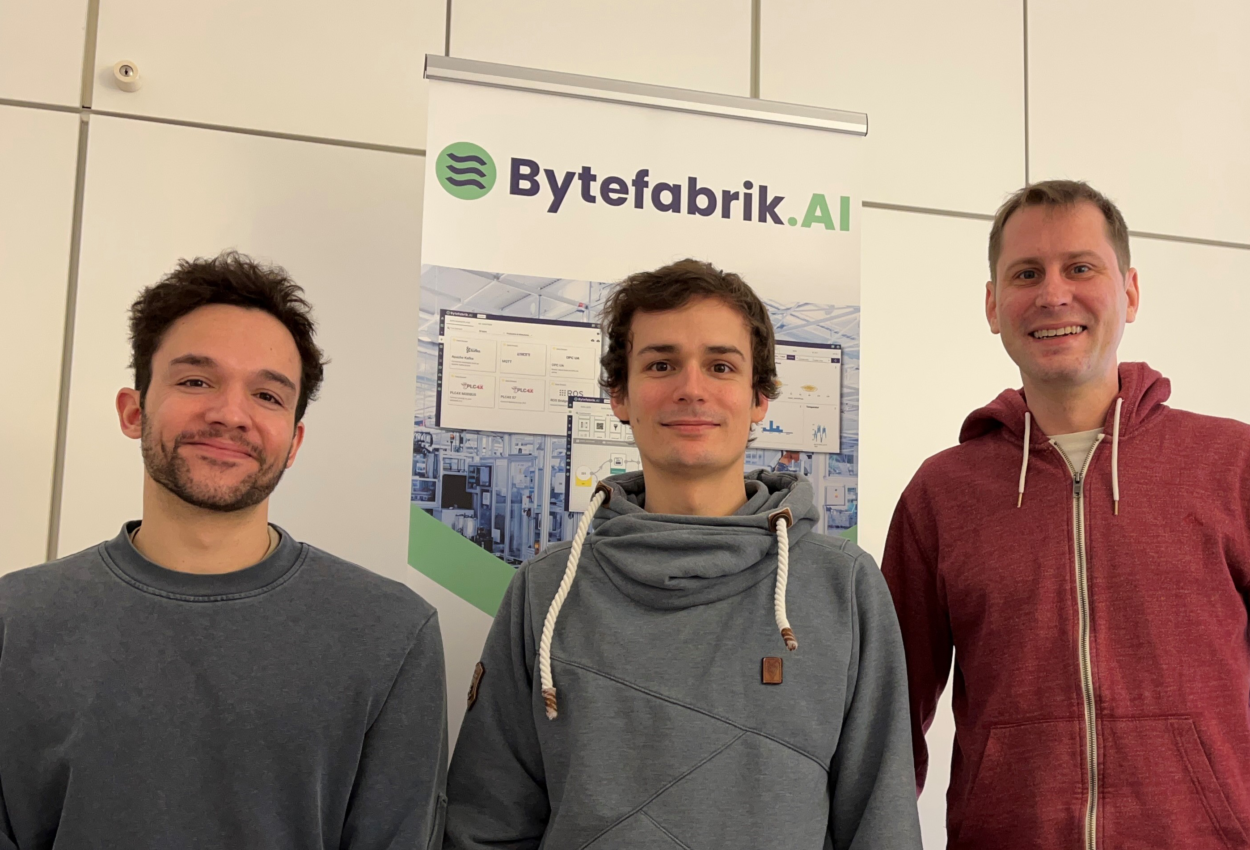
How did the founding team come together?
Philipp: I came to FZI as a student assistant and had already worked with Dominik there. I liked that so much that I stayed at the FZI after my computer science studies. Together, we then developed the solution further. When we wanted to develop no-code modules for AI, Patrick joined the team. He had worked at FZI on topics related to simple user interaction for AI development. So the team was then complete.
Dominik: In principle, we had all worked together for years and could therefore know relatively well how it works as a team in a spin-off. Nevertheless, it is significantly different than in the time before.
Where do you see the hurdles in the start-up process? Where did you get support?
Dominik: We received a lot of support from FZI and KIT. The FZI supports start-ups in many phases. For example, we went to trade fairs with the FZI long before the start-up and were able to get important feedback there. We were also able to gather a lot of feedback through industry contacts. The KIT also provided us with excellent support in the start-up process, e.g. with advice on EXIST.
Philipp: I think the biggest hurdle is to actually do it. All in all, the Karlsruhe environment makes it very easy to tackle spin-offs from the research environment. Nevertheless, despite all the advice, you have to have done many things yourself at least once. That’s why there was a lot to discover 😉 .
What was one of your biggest challenges during the start-up phase?
Philipp: Definitely the search for product-market fit. Even though we tried to find out very early on how to align our product with the needs of the market through interviews and customer talks, there was still quite a lot to do. The path from a research prototype to a product is not that short, and the path from an open source project to a commercially successful product offering is not easy either. We learned a lot there and it helped us to learn a lot about the challenges of the industry with a partner network from the mechanical engineering sector.
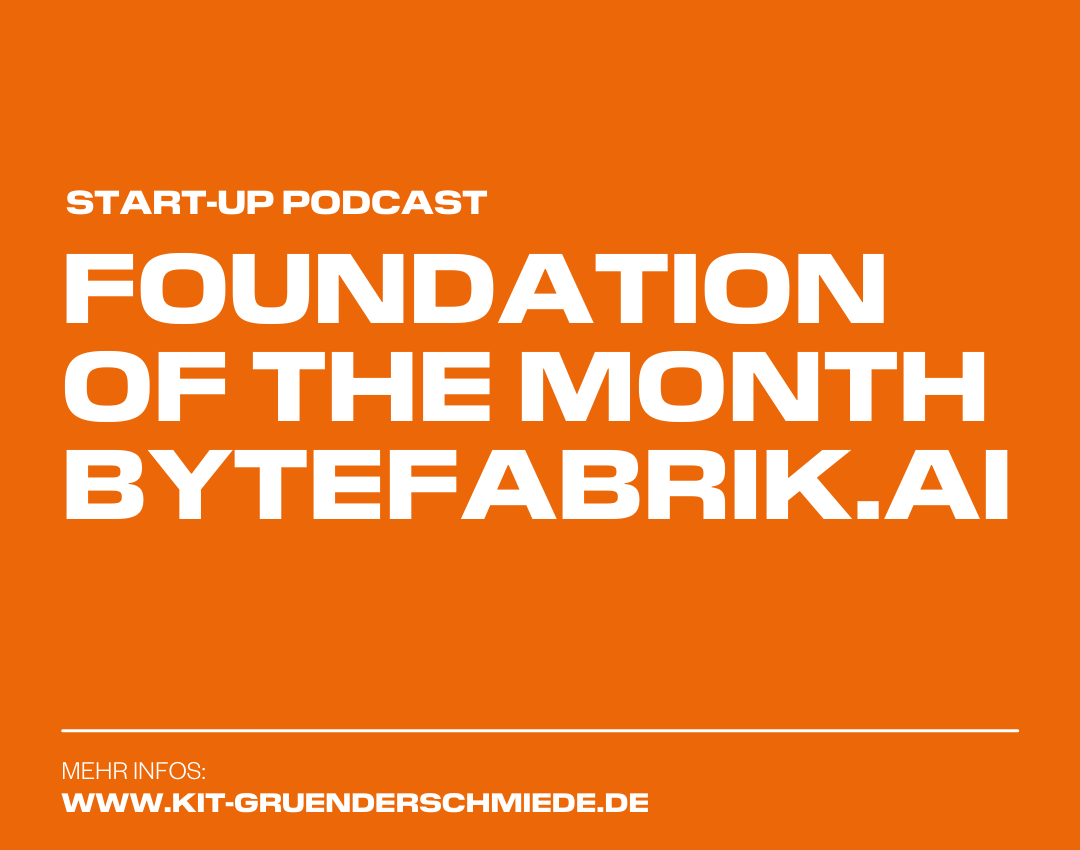
Has Corona had an impact on your startup/industry so far and if so, what? (optional)
Dominik: Even though we submitted our EXIST application in the middle of the Corona period and were therefore to a certain extent prepared for the situation, we would not have thought that it would still accompany us for the entire EXIST year. This has made the acquisition of new customers in particular more difficult. Despite all the virtual formats, personal contact is something that is difficult to replace in our target industry. Since there were no trade fairs or events, we relied a lot on personal referrals from existing contacts. Overall, the industry has a lot of challenges right now due to Corona, the whole supply chain issue and also the current dramatic situation. This shows once again how important it is to have a product that really serves a pain point.
What qualities do you think a founder should have?
Philipp: Enthusiasm for the product is very important from my point of view.
Dominik: I would underline enthusiasm right away. Versatility is also important – in the beginning, you actually do everything yourself, so it’s nice if you can get excited about many, even very different topics. Perseverance is also a quality, of course, because starting your own business is anything but straightforward, at least from our point of view.
Do you have any practical tips for other young entrepreneurs?
Dominik: Get to grips with the market as early as possible! Customer feedback is the most important thing. This can also be done excellently before the start-up, e.g. while working at the FZI or KIT. We have many conversations to find out how we need to adapt our product and where the companies have problems that we can help to solve. You can never get customer feedback too early.
From today’s perspective, what would you perhaps do/address differently?
Philipp: There are certainly many things, but in retrospect you are always smarter. But that’s also the beauty, when you do something for the first time, it would be funny if you do everything right. We would probably hit the road even sooner and forget about the technology behind our product for 2 months.
What are your plans for the future? What are your next big milestones?
Dominik: From an open source perspective, we hope to become a top-level project at the Apache Software Foundation in the near future. Then we will have made the transition to a community-driven project. We would like to continue to play a significant role in the development and provide resources for it. From a product perspective, we want to work with our current pilot customers to tackle more exciting applications and make the transition from project to real product business. Once we are there, we will also evaluate further funding opportunities for faster growth.
Thank you very much for answering the questions!
